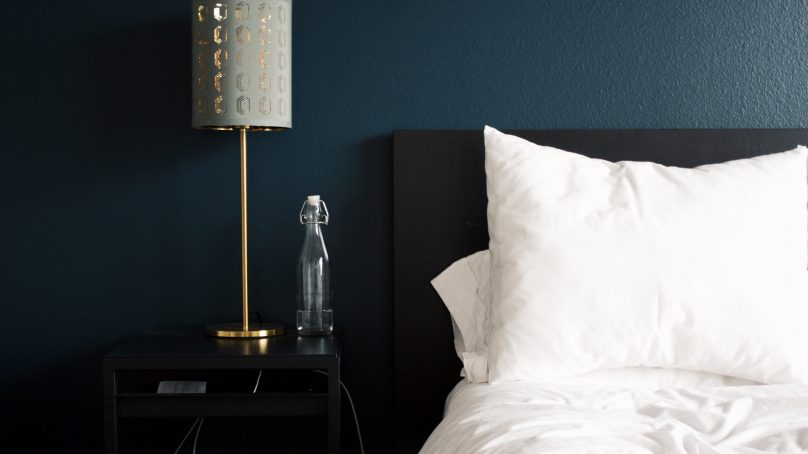Considered the ‘tiny houses’ of the hotel industry, micro hotels have been popping up all over the world, marked by their style, efficiency and price. Saqib Jafri, associate manager, Hotels MENA Region, for Colliers International, gives us the lowdown
Micro hotels are an example of minimalist living, a trend which focuses on utilizing smaller areas proficiently. They provide rooms with smart designs by making use of the space efficiently. Significantly, even though the rooms are compact, they are big on design. The micro hotel concept is becoming popular due to changing trends in the travel industry. Travelers, especially the younger generation, are focusing on taking several short vacations rather than a single, long holiday in order to keep a healthy work-life balance. This shift in travel patterns requires hotels that are more budget-friendly and convenient to accommodate guests’ demands. The trend also has an appeal that stretches well beyond just millennials, with budget leisure travelers, backpackers and business travelers all attracted to such hotels. Micro hotels are usually found near or inside airports and in high-density areas, such as city centers.
The micro hotel’s characteristics
The guestrooms of a micro hotel are small in nature, ranging from 10 to 20 square meters. Such a small space requires an efficient design to fit the essentials, including a bed, storage facilities and a bathroom, while optimizing all available space. A micro hotel usually provides various choices in the types of rooms available, including pod rooms, bunk rooms, single rooms and even double rooms. It is common for micro hotels to provide better quality beds, modern, as well as space-efficient furniture, and bathrooms with basic toiletries. In order to create an illusion of larger space, rooms can typically also include a large window. As more hotels are utilizing the benefits of digital connectivity, micro hotels are also leaning toward this trend in order to enhance in-room experience for their guests, often providing them with the ability to control temperature, light and TV with smart technology. These hotels tend to have larger public spaces to counter the compact private areas. The public spaces can be in the form of a large lobby, restaurant, bars, café, terrace lounges and common working areas. These spaces provide an ideal location for guest interaction and an opportunity for the hotel to offer localized experiences. In addition, some hotels also make activities such as yoga classes and destination-specific culture workshops available, enabling guests to enjoy authentic and local experiences.
Brands in this space
Independent brands such as Yotel and Pod have operated in the micro hotel industry since 2007, located near airports and in city centers. Typically independent micro hotel brands, including Arlo Hotels (New York), CitizenM (Netherlands) and Hoxton Hotels (London) also have a presence in the market.
International operators such as Marriott, Accor and Hilton have dived into developing their own micro hotel brands after observing the rising popularity of these properties among travelers. Marriott’s micro hotel brand Moxy operates 50 properties in North America, Asia and Europe, with a further 112 in the pipeline. Hilton’s Motto is an upcoming name, with the brand’s first property set to open in Marylebone, London in 2020. Tribe, a midscale lifestyle Accor brand, is another micro hotel concept currently operating one property in Australia. Premier Inn’s economy micro hotel brand ZIP, meanwhile, features one of the smallest room sizes at approximately 10 square meters.
These brands have a common focus of providing guests with flexible, affordable, stylish and smart rooms. They place the emphasis firmly on making best use of spaces in urban areas and often set out to offer their guests seamless experiences.
Benefiting developer and operator
Industry players are increasingly opting to develop micro hotels, as they come to realize that the costs of operating these properties are lower than those of a traditional hotel in the same location due to their characteristically smaller rooms. They often also have just one restaurant or café, and overall, require less staff, bringing down labor costs. Another advantage for the owner is the profit obtained from the development of more rooms on a relatively smaller site.
Future in the GCC region
International micro hotel brands such as Tribe by Accor and Motto by Hilton have identified potential growth for the brands in the Middle East market. Accor is eyeing urban locations in the UAE, Saudi Arabia, Oman and Bahrain for the expansion of its Tribe brand. The growing popularity of micro hotels presents an opportunity for development in the city centers of Dubai, Abu Dhabi, Jeddah and Riyadh. In Dubai, these developments could be in the downtown area and near or within the airport. As Dubai’s market segment includes business, as well as leisure travelers, micro hotels could attract multiple segments with their stylish urban vibe. The room sizes in the region are expected to be on the larger side compared to those in Europe and America, due to guests’ expectations.
colliers.com

















